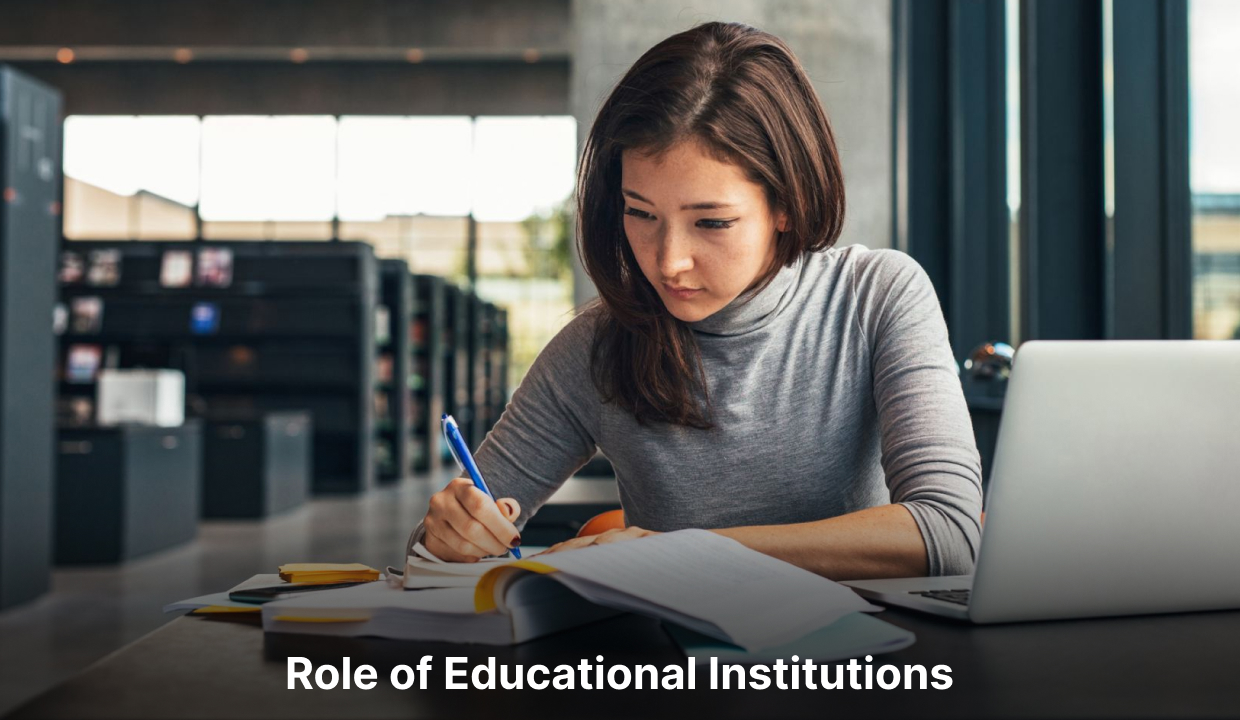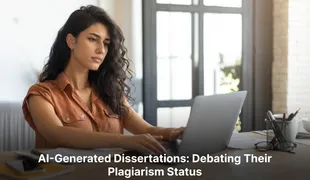Unravelling the Distinction: Professional Assignment Writers vs. Freelancers..

Introduction
In recent years, artificial intelligence (AI) has made significant progress in various industries, including dissertation writing. When students take help of dissertation writing services, they also deliver a plagiarism-free report, but this is different with AI modeller tools. AI-generated content has become increasingly popular, raising questions about its impact on the academic community and the issue of plagiarism. This article explores the complex relationship between AI-generated dissertations and plagiarism, highlighting the ethical and legal aspects while considering its impact on students and researchers.
Understanding AI-generated content
AI-generated content refers to text or documents created with the help of artificial intelligence algorithms. These advanced systems use natural language processing and machine learning techniques to analyse large amounts of data and produce coherent, human-like written content. But this technique has the limitation of data. It only takes data up to a time limit.
The rise of AI in academic writing
In recent years, AI has found applications in various aspects of academic writing, from grammar-checking tools to content creation. With the ability to generate essays, research papers and even dissertations, AI presents a convenient and time-saving option for students and researchers. Over-reliance on students on it is preventing them from developing their skills.
Ethical Dilemma: Plagiarism Versus Originality
1. Definition of plagiarism: Plagiarism, in its simplest terms, is presenting someone else's work or ideas as your own without proper attribution. It is widely considered an academic offence and a breach of ethical conduct.
2. Evaluation of AI-generated dissertations: The use of AI-generated content blurs the lines between originality and plagiarism. Although the text is technically new, it needs more creative and intellectual effort than traditional academic writing.
3. Concerns with Academic Integrity: AI-generated dissertations raise concerns about academic integrity. Students may be tempted to submit AI-written papers without fully understanding the material, leading to a lack of authentic learning and critical thinking.
Validity of AI-generated dissertations
1. Copyright and Intellectual Property: AI-generated content often relies on pre-existing text and data to learn from, creating potential copyright issues. Determining ownership of AI-generated documents can be challenging.
2. Fair Use and Educational Guidelines: Educational institutions should establish guidelines for fair use of AI-generated content to ensure it conforms to appropriate use policies and respects the intellectual property rights of original author
Role of Educational Institutions
1. Develop clear policies: To address the challenges posed by AI-generated dissertations, educational institutions should establish clear policies regarding the use of AI in academic writing and its potential effects on plagiarism.
2. Emphasis on ethical writing: Educational institutions are responsible for emphasising the importance of ethical writing practices and encouraging students to develop their critical thinking and writing skills.
How do academic writers ensure plagiarism-free material for scholars?
1. Professional Assignment Writers: They are specialise in furnishing plagiarism-free content to scholars by following best practices. These are crucial ways in which they ensure originality and authenticity in their work.
2. Expansive exploration: Essay writers considerably probe content using estimable and different sources. This helps them to gain a deeper understanding of the subject matter, enabling them to present their studies in their own words.
3. Proper Citations and References: Professional discussion gives accurate citations and references when using outside sources. They follow the citation style specified by the academic institution or assignment guidelines(e.g., APA, MLA, Chicago, etc.). This practice gives credit to the original authors and avoids plagiarism.
4. Paraphrasing and recapitulating: Writers retell and epitomise information from sources rather than copying rulings or paragraphs verbatim. It demonstrates their understanding of the material while maintaining originality.
5. Plagiarism Discovery Tools: Numerous professional academic writers use plagiarism discovery software to ensure their content is free of unintentional parallels with existing works. This helps them to spot and fix any accidental cases of plagiarism.
6. Particular knowledge and expertise: Academic writers specialising in specific subjects or disciplines frequently calculate on their knowledge and grit. They produce original content when it benefits from their understanding of the subject.
7. Individual Approach: Each assignment is unique; custom assignment jotting services produce custom-made papers for each pupil. This prevents the play of former work and ensures that the material is acclimated to the assignment's specific conditions.
8. Multiple drafts and variations: Writers read various reference drafts across motifs, precisely reviewing and editing their work. This process helps to catch any unintentional parallels with other sources and ensures that the final piece is original and typo-free.
9. Plagiarism-Free Guarantee: Reputable assignment writing service frequently offers Plagiarism-Free Guarantee to its guests, furnishing redundant assurance that the content is original.
10. Customer communication: Writers communicate with scholars to clarify instructions or gain fresh information. This ensures that the final product meets the pupil's requirements and avoids misconstructions that could lead to unintentional plagiarism.
By employing these strategies and maintaining a commitment to academic integrity, professional academic pens can constantly give plagiarism-free material to scholars. Scholars should choose dependable and reputed jotting services, prioritising originality and ethical practices.

Conclusion
In this blog, we have learned that academic paper content created by AI tools will be counted as plagiarism, resulting in you getting low grades in your exams and spoiling your name. The rise of AI-generated dissertations has sparked a contentious debate within the academic community. While AI offers undeniable benefits, it raises serious ethical and legal concerns regarding plagiarism and academic integrity. Educational institutions should adopt a proactive approach, develop clear guidelines, and promote honest writing. Students should also take the help of the best essay writing services instead of submitting plagiarised content. These services have AI Dissertation Writers, which provide unique writing to the students—a happy educational journey.
Leave a Reply
Your email address will not be published. Required fields are marked *
.webp)





